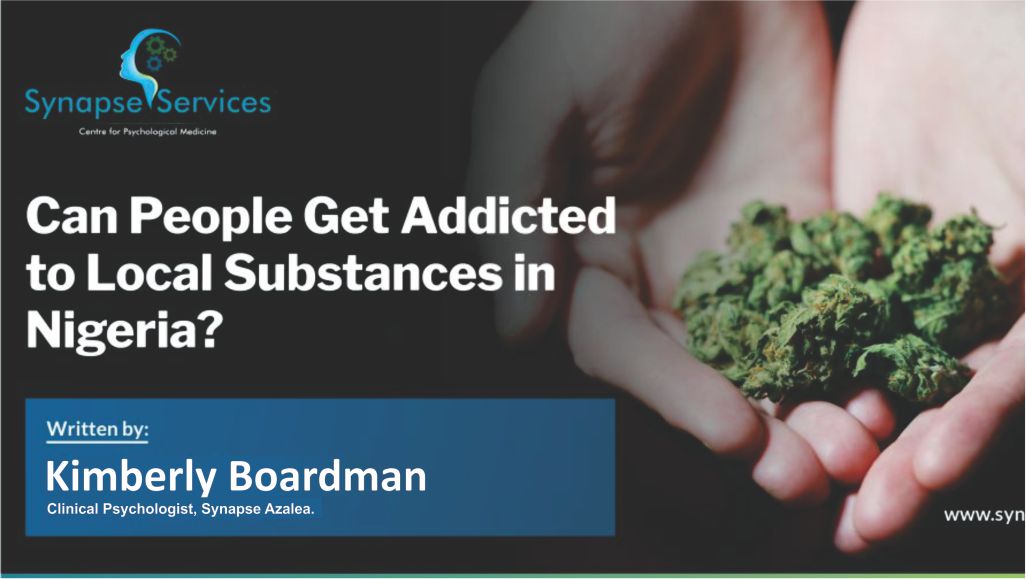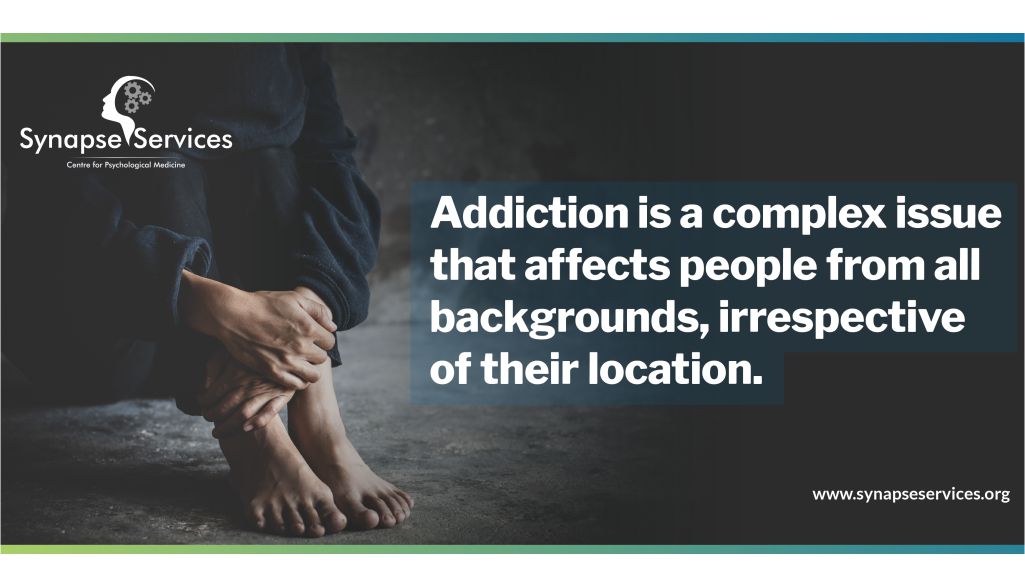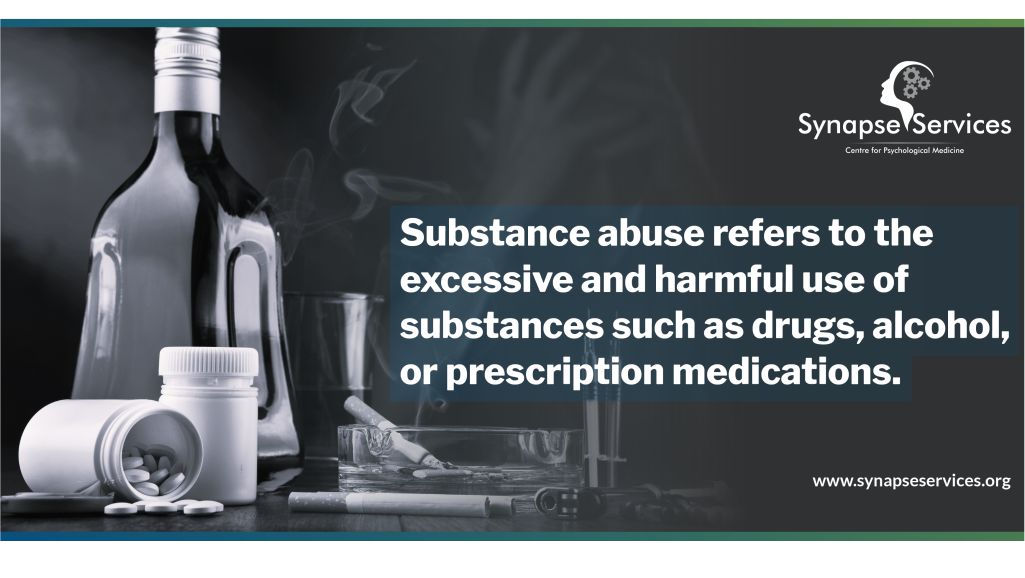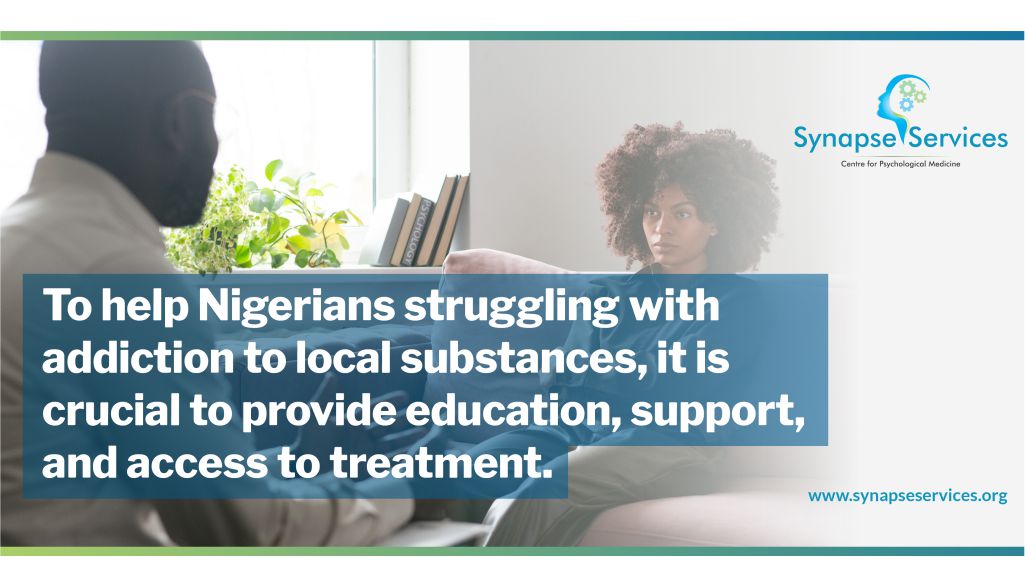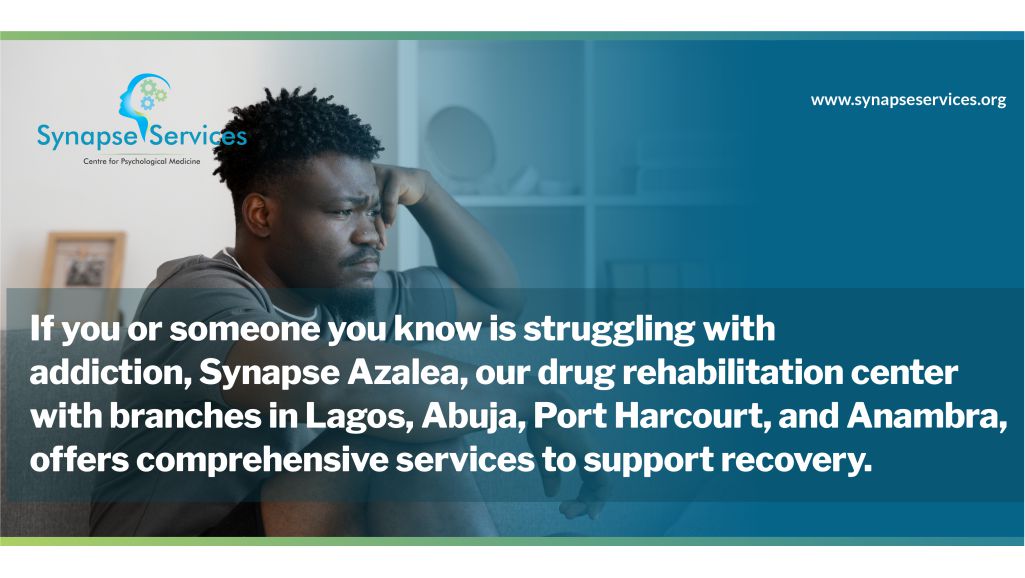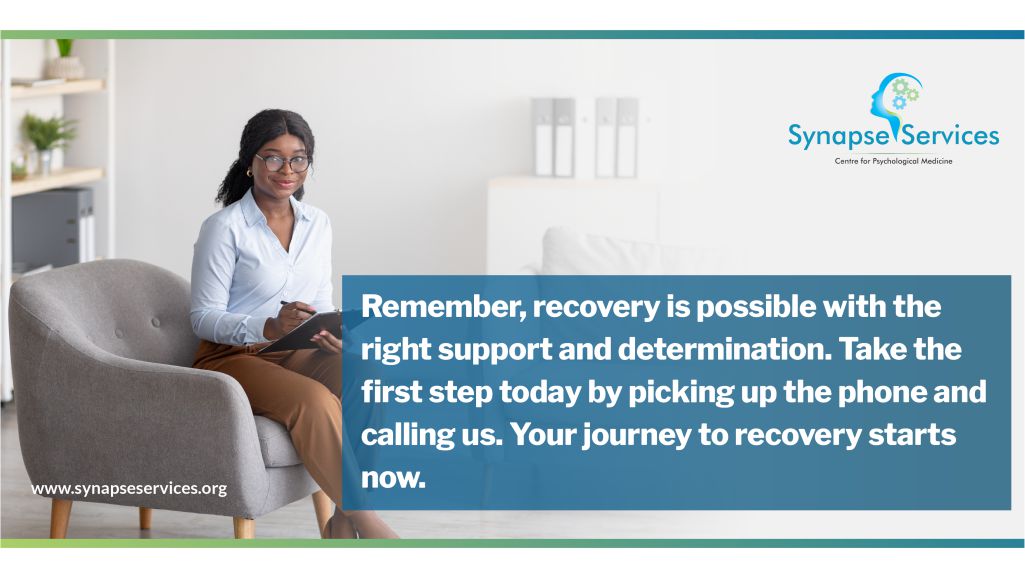Can People Get Addicted to Local Substances in Nigeria?
Yes, in Nigeria, particularly among young middle-class adults, addiction to local substances is a real concern. Just like with other addictive substances, individuals can develop a dependency on local herbs or plants with psychoactive properties.
Addiction is a complex issue that affects people from all backgrounds, irrespective of their location. However, the availability and prevalence of particular substances in a community can significantly influence the development and maintenance of addiction.
For individuals struggling with addiction, local substances—those made or easily accessible in a specific area—can present unique challenges.
These substances, often deeply ingrained in local culture and readily available, can lead to physical and mental health deterioration, including withdrawal symptoms and a persistent need for the substance to function normally.
What Are Local Substances in Nigeria?
Local substances in Nigeria include:
• ogogoro (a traditional gin),
• skushies (a concoction of herbs and ogogoro),
• gerigemu (a blend of thorn apple and ogogoro),
• monkey tail (a mix of weed and ogogoro),
• dried pawpaw leaves, and
• asa (a mixture of tobacco and other substances).
These substances are often used for cultural or recreational purposes but can lead to addiction when misused.
What Is Substance Abuse?
Substance abuse refers to the excessive and harmful use of substances such as drugs, alcohol, or prescription medications. It involves recurrent and compulsive consumption of these substances, despite the negative consequences they may have on physical, mental, and social well-being.
Substance abuse is often characterized by a loss of control over one's use, increasing tolerance, and withdrawal symptoms when attempting to quit or cut back.
Substance misuse can have a significant negative impact on an individual's relationships and overall quality of life, in addition to its physical and mental effects.
The specific substance being abused, as well as the duration and severity of the misuse, can all impact the consequences of substance abuse.
For example, chronic alcoholism can lead to liver damage, while mishandling prescription drugs can result in addiction and overdose.
Substance addiction can exacerbate existing mental health conditions and contribute to the development of mental health disorders such as anxiety and depression.
Individuals struggling with substance misuse may also find it challenging to maintain stable housing, employment, and finances, further perpetuating the cycle of addiction.
Why Do Nigerians Get Addicted to Local Substances?
Addiction to local substances in Nigeria can be attributed to various factors. These substances may stimulate the brain's reward system, releasing dopamine and creating a sense of pleasure.
Over time, individuals may develop tolerance, requiring higher doses to achieve the same effect.
Additionally, local substances may be used as coping mechanisms for stress, trauma, or societal pressures, further reinforcing addictive behaviours.
1. Cultural and Social Factors:
Local substances are often deeply ingrained in Nigerian culture and used in traditional ceremonies, celebrations, and social gatherings. The normalization and acceptance of these substances in social settings can contribute to their misuse and eventual addiction.
2. Availability and Accessibility:
Local substances are often readily available and affordable, making them easily accessible to a wide range of individuals. The ease of access can increase the likelihood of experimentation and eventual addiction.
3. Peer Pressure:
Peer influence plays a significant role in substance abuse among Nigerians. Pressure from friends or social circles to participate in substance use can lead to experimentation and, ultimately, addiction.
4. Stress and Trauma:
The high-stress levels and traumatic experiences faced by many Nigerians can lead them to seek solace in local substances. These substances may be used as a coping mechanism to alleviate stress or numb painful emotions, leading to a cycle of dependency.
5. Lack of Awareness and Education:
Inadequate information and education about the risks of local substance abuse can contribute to addiction. Many individuals may not be fully aware of the potential consequences of their substance use, leading to continued misuse and addiction.
6. Economic Factors:
Economic challenges, such as poverty and unemployment, can also contribute to substance abuse and addiction. Individuals facing financial difficulties may turn to local substances as a means of escape or temporary relief from their hardships.
How Does Addiction Affect Nigerians?
Addiction to local substances can have profound effects on Nigerians' lives. It can strain relationships, impact work or school performance, and lead to physical and mental health problems.
For example, chronic alcoholism can result in liver damage, while misuse of substances like skushies and monkey tail can lead to impaired judgment and risky behaviours.
Local substance addiction not only affects individuals but also has a significant impact on communities across Nigeria. Families may be torn apart by addiction, as individuals struggle to maintain relationships and responsibilities. The economic impact of addiction can also be devastating, as individuals may lose their jobs or struggle to support themselves and their families.
How Can We Help Nigerians Struggling With Addiction to Local Substances?
To help Nigerians struggling with addiction to local substances, it is crucial to provide education, support, and access to treatment.
Raising awareness about the risks of local substance abuse and promoting culturally relevant intervention strategies can encourage individuals to seek help.
Collaboration between local authorities, healthcare providers, and community organizations is essential to address the underlying causes of addiction and provide effective support services.
In addition to providing addiction treatment, it is essential to promote healthy lifestyles and alternative coping mechanisms in Nigeria.
Encouraging physical activity, healthy eating, and positive social connections can help individuals reduce their reliance on substances and improve their overall well-being.
Providing access to mental health services and counselling can also help individuals to address the underlying issues that may contribute to addiction.
If you or someone you know is struggling with addiction, Synapse Azalea, our drug rehabilitation center with branches in Lagos, Abuja, Port Harcourt, and Anambra, offers comprehensive services to support recovery. Remember, recovery is possible with the right support and determination.
Addressing Stigma and Misconceptions
One of the biggest challenges in addressing addiction to local substances in Nigeria is the stigma and misconceptions surrounding addiction. Many people view addiction as a moral failing or a sign of weakness, rather than a complex health issue.
This stigma can prevent individuals from seeking help and can perpetuate the cycle of addiction. It is crucial to educate the public about addiction and to provide support and compassion to those struggling with addiction.
Seeking Help for Addiction in Nigeria
If you or someone you know is struggling with addiction to local substances, it's important to seek help.
Synapse Azalea, a drug rehabilitation centre with branches in Lagos, Abuja, Port Harcourt, and Anambra, offers comprehensive services to support recovery.
Our centre provides counselling, support groups, and treatment programs to assist individuals in overcoming addiction and leading healthier lives.
Remember, recovery is possible with the right support and determination.
Take the first step today by picking up the phone and calling us. Your journey to recovery starts now.
References
Dennis Oghenechoja Veta (2023) Local substances used in Ilorin South Local Government Area of Kwara State, Nigeria, Journal of Substance Use, DOI: 10.1080/14659891.2023.2202748
https://doi.org/10.1080/14659891.2023.2202748




